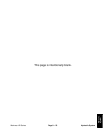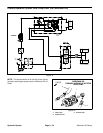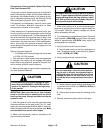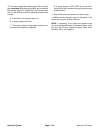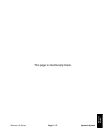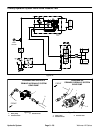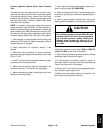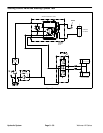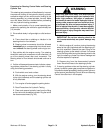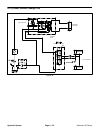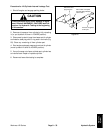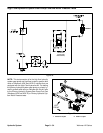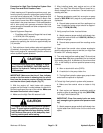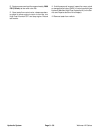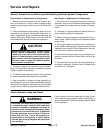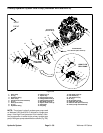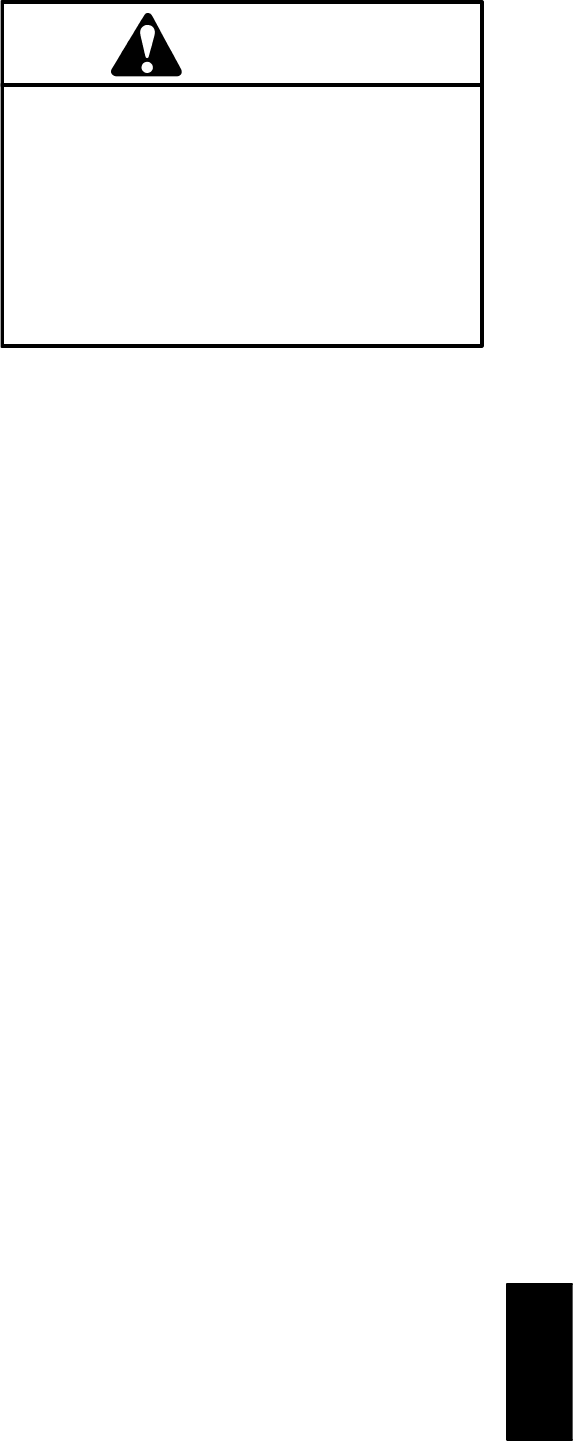
Workman HD Series Page 9 − 31 Hydraulic System
Procedure for Steering Control Valve and Steering
Cylinder Test
This steering test procedure will be affected by incorrect
tire pressure, binding of the hydraulic steering cylinder,
excessive weight on the vehicle and/or binding of the
steering assembly (e.g. wheel spindles, tie rods). Make
sure that these items are checked before proceeding
with any hydraulic testing procedure.
1. Make sure hydraulic oil is at normal operating tem-
perature by operating the vehicle for approximately ten
(10) minutes.
2. Drive vehicle slowly in a figure eight on a flat level sur-
face.
A. There should be no shaking or vibration in the
steering wheel or front wheels.
B. Steering wheel movements should be followed
immediately by a corresponding front wheel move-
ment without the steering wheel continuing to turn.
3. Stop vehicle with the engine running. Turn steering
wheel with small quick movements in both directions. Let
go of the steering wheel after each movement. The
steering wheel or front wheels should not continue to
turn.
4. If either of these performance tests indicate a steer-
ing problem, determine if the steering cylinder is faulty
using the following procedure.
A. Park vehicle on a level surface.
B. With the engine running, turn the steering wheel
to the right (clockwise) until the steering cylinder rod
is fully extended.
C. Turn engine off and engage the parking brake.
D. Read Precautions for Hydraulic Testing.
E. Clean and remove hydraulic hose from the fitting
on the rod end of the steering cylinder. Plug the end of
the disconnected hose (Fig. 23).
WARNING
Keep body and hands away from disconnected
hoses and fittings that might eject hydraulic fluid
under high pressure. Use paper or cardboard,
not hands, to search for leaks. Hydraulic fluid es-
caping under pressure can have sufficient force
to penetrate the skin and cause serious injury. If
fluid is injected into the skin, it must be surgically
removed within a few hours by a doctor familiar
with this type of injury. Gangrene may result from
such an injury.
IMPORTANT: Do not turn steering wheel to the
left (counterclockwise) as system damage may
occur.
F. With the engine off, continue turning the steering
wheel to the right (clockwise) with the steering cylin-
der fully extended. Observe the open fitting on the
steering cylinder as the wheel is turned. If oil comes
out of the fitting while turning the steering wheel to the
right, the steering cylinder has internal leakage and
must be repaired or replaced.
G. Remove plug from the disconnected hydraulic
hose. Reconnect hose to the steering cylinder.
5. If steering problem exists and the steering cylinder,
primary hydraulic system gear pump flow and system re-
lief pressure tested acceptably, steering control valve re-
quires service (see Steering Control Valve and Steering
Control Valve Service in this chapter).
Hydraulic
System



